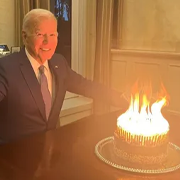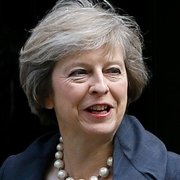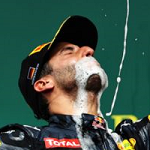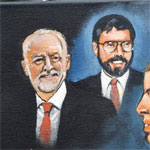|
What is the point in sending kids back to school for under a month, when that last month tends to be a "wind down" anyway and exams are cancelled? I assume it's just to free up parents again so that they can go back to work and continue making number go up, but it just doesn't make any sense at all outside of that. //edit: 31 is the number of days since I last met my move goal on my watch. GazChap fucked around with this message at 10:36 on May 7, 2020 |
|
|
|

|
| # ? May 20, 2024 22:10 |
|
GazChap posted:What is the point in sending kids back to school for under a month, when that last month tends to be a "wind down" anyway and exams are cancelled? It's because of that yes. They didn't want to close the schools in the first place because of the number of people who then couldn't go to work.
|
|
|
|
whole interview for those interestedquote:Keir Starmer: ‘The government has been slow in nearly all of the major decisions’
|
|
|
|
Gonna be interesting for any business with Scottish or Welsh offices to have two tiers of staff going back into offices
|
|
|
|
GazChap posted:What is the point in sending kids back to school for under a month, when that last month tends to be a "wind down" anyway and exams are cancelled? in normal years last month can be a wind down. but in the current circumstances that probably won’t happen. could have a bit of a catch up instead.
|
|
|
|
This is definitely going to cause some tensions in the regional areas. A lot of areas away from the big cities haven't hit the peak of this outbreak yet, before considering a second wave. A wave of holidaymakers and tourists taking a partial relaxation as a green light to flood back to their second homes and airbnbs is likely to push it into overdrive. The Welsh Government in particular won't be too happy, and there are plenty of people around who are already on the verge of reaching for the petrol and matches.
|
|
|
|
namesake posted:It's because of that yes. They didn't want to close the schools in the first place because of the number of people who then couldn't go to work. Cerv posted:in normal years last month can be a wind down. but in the current circumstances that probably won’t happen. could have a bit of a catch up instead. 
|
|
|
|
If you're wanting to keep up with Keir's paywalled interviews, https://github.com/iamadamdev/bypass-paywalls-chrome works well for the FT.
|
|
|
|
namesake posted:You literally did just blame one of them. It's ultimately the fault of the government for being ambivalent about a deadly virus, i get it. i'll just leave it at that because i don't think i'm expressing myself very well
|
|
|
frankenbeans posted:I was more expecting it to lean more into rich people stuff, like nannies and house cleaners. Did any of that actually involve interacting with people and risking spreading the virus or are you just turning into a curtain-twitching conservative because people are breaking "the rules!"
|
|
|
|
|
GazChap posted:Seems a bit short-lived, as they'll only be coming home again for 6 weeks a month later, and I imagine childcare is going to be very difficult to come by for a good long while yet. They'll be back home in a month when infections and deaths have shot up again, it's myopic short termism from the government. Also: quote:Instead, Starmer is expected to take Labour in a more moderate “social democrat” direction while still wrapping himself in socialist rhetoric LMAO that literally was Corbynism so good luck moving to the right and still claiming that's where you're going.
|
|
|
|
no no, haven't you heard? Corbynism was a tiny hard-left cabal (nice scary word that!) inspired by *gasp* Marx and *fainting* Trotsky!
|
|
|
|
Jippa posted:Was Del Boy in charge of this? So were they worse than actual bin bags?
|
|
|
|
Lmao https://twitter.com/Peston/status/1258323725855993857?s=19
|
|
|
|
GazChap posted:What is the point in sending kids back to school for under a month, when that last month tends to be a "wind down" anyway and exams are cancelled? Obviously there's the number. From a teachers perspective.. Year 6 will be to help with the transition between primary and secondary. Y10 and y12 cos they've got exams in a year. They'll have missed 7 weeks of school by the 1st of June. If it's closed until Sept that's 7-8 more weeks. You can't just chop 14 weeks of the content out of a GCSE or A-Level as they are all assessed at the end and teachers teach the content in their own order. I can't see how they can do anything but give them the full exam and adjust the grading curve appropriately. But how you can possibly socially distance them in school is beyond me.
|
|
|
|
goddamnedtwisto posted:I was a porter, poisoning him would have been complex. I *could* have run him over with the cleaning trolley I suppose. and as this morning’s FT interview reminded us, while Starmer was Director of CPS he used to eat in the staff canteen with the the grunts. it shouldn’t be a surprise that the successful politicians tend to follow these same patterns of behaviour. whether it’s putting on an act or genuine.
|
|
|
|
crispix posted:Some of the public definitely are asking for it and it won't take much to convince a whole lot more in spite of reality that it's nothing to worry about, again im of the opinion that much of the anti lockdown sentiment is astroturfed. would be interesting to see what ads and posts the loudest of em have been looking at on facebook. once the boomer sees stuff on that shitshow these things take on a momentum of their own.
|
|
|
|
Dabir posted:hard-left cabal (nice scary word that!) It's interesting how the left keeps getting called antisemites by people using a word derived from Kabbalah to mean a secretly conspiring clique, isnt it
|
|
|
|
like at least trump is completely open that people will die to reopen the economy and he doesn't give a poo poo, we have to put up with them just pretending that it's all over everythings fine go back to work citizen
|
|
|
|
Cerv posted:Asked why voters turned away from Labour in droves in the last election, he says: “The leadership of the Labour party was [the] number one [reason], fair or unfair.” Actually, it doesn't. fair or unfair is what he said. Also, um, Brexit? Or would it be awkward for the guy who was 100% FBPE 'back Remain now Jezza' to admit that?
|
|
|
|
Cerv posted:and as this morning’s FT interview reminded us, while Starmer was Director of CPS he used to eat in the staff canteen with the the grunts.
|
|
|
|
i mean tbh i am sympathetic to lifting the lockdown cos being stuck inside all day loving sucks but this ain't the way to lift it sis
|
|
|
|
feedmegin posted:Actually, it doesn't. fair or unfair is what he said. that post was supposed to be tongue in cheek
|
|
|
|
gh0stpinballa posted:im of the opinion that much of the anti lockdown sentiment is astroturfed. would be interesting to see what ads and posts the loudest of em have been looking at on facebook. once the boomer sees stuff on that shitshow these things take on a momentum of their own. Maybe because of where I am but there are a lot of people even in my own family who still seem to be living in a state of cognitive dissonance and any announcement of an easing of the lockdown will be tantamount in their heads to the whole thing being over. It's going to be a poo poo show
|
|
|
|
Borrovan posted:A barrister I work with was saying about meeting Starmer at some dinner. He was a huge fan of his, loved his books & admired his work, but apparently he just came across as rude, arrogant and self important. My colleague commented to one of the other barristers afterwards that he must have been having an off day, but other barrister said no, he's always like that, he's just a oval office. My mam was at some event he was at back when he was dpp and said he had a load of hanger ons to hear his every word except he was extremely uncharismatic and clearly loving the attention. Think she still voted for him though
|
|
|
|
Nothingtoseehere posted:Did any of that actually involve interacting with people and risking spreading the virus or are you just turning into a curtain-twitching conservative because people are breaking "the rules!" On a scale of 1 to 'Thursday evening on Westminister bridge', it would barely move the needle providing they were careful.
|
|
|
|
https://twitter.com/OwenJones84/status/1258003499167682560?s=20
|
|
|
|
crispix posted:Maybe because of where I am but there are a lot of people even in my own family who still seem to be living in a state of cognitive dissonance and any announcement of an easing of the lockdown will be tantamount in their heads to the whole thing being over. It's going to be a poo poo show yeah same with my fam. this isn't an accident i dont think, they have told the papers to do this so people think the lockdown actually is over, then once everyone is running around outside at the weekend the gov will say, "oh drat looks like we can't get this toothpaste back in the tube, guess we better lift the lockdown if people have had enough"/"it's the publics fault theg got the wrong impression"
|
|
|
|
I shook kier starmers hand in the before times he was personable enough I guess? extremely short tho
|
|
|
|
Borrovan posted:A barrister I work with was saying about meeting Starmer at some dinner. He was a huge fan of his, loved his books & admired his work, but apparently he just came across as rude, arrogant and self important. My colleague commented to one of the other barristers afterwards that he must have been having an off day, but other barrister said no, he's always like that, he's just a oval office. I watched a Uni Q&A with him from 2012 the other day, he was very matter-of-fact and content to plod along in his own way, until someone (a woman, if that's significant) asked him an awkward, probing question, and suddenly he became very smug and smarmy, asking her something like "you've read x report, I assume?", and tried his hardest to shut her down. He does not like the idea of someone being smarter than him.
|
|
|
|
https://twitter.com/Peston/status/1258315481955565568?s=19 This has to be peak WW2 fetishisation. It won't be
|
|
|
|
yea I'm sure the government is real concerned by the headlines they deliberately sought to create by leaking information to their pet journalists they're probably all huddled up in downing Street sobbing "why didn't we do some clearer messaging directly to the public to manage expectations and emphasise that it's not over, rather than anonymously briefing our chums to tell them the lockdown is over?", heartbreaking XMNN fucked around with this message at 11:30 on May 7, 2020 |
|
|
|
lol great use of the hypertext capability of the world wide web site twitter.com in sharing an image with a QR code rather than, for instance, a hyperlink that people can click on. Just going to get my phone out and take a picture of my computer monitor so I can support this important campaign by the Journalists' Charity. Aren't journalists meant to be experts in communicating and understanding media? big scary monsters fucked around with this message at 11:32 on May 7, 2020 |
|
|
|
Even better I think most people use twitter on their phones now, so just going to get my second phone to take a phone picture of my phone screen. https://picturesofpeoplescanningqrcodes.tumblr.com/
|
|
|
|
Lobster God posted:https://twitter.com/Peston/status/1258315481955565568?s=19 i'm sure everyone is going to be fine being forced back into work but also told they can't leave the house otherwise
|
|
|
|
Lobster God posted:https://twitter.com/Peston/status/1258315481955565568?s=19
|
|
|
|
Jose posted:i'm sure everyone is going to be fine being forced back into work but also told they can't leave the house otherwise Like lots of people have been the whole time.
|
|
|
|
TACD posted:VL day == Victory over Lockdown day? Not even fetishising it as Victory over COVID day? So loving weird man
|
|
|
|
Jose posted:i'm sure everyone is going to be fine being forced back into work but also told they can't leave the house otherwise Don’t need to spend on anything cultural or any local amenities if you’re just running ‘work > commute > home > commute > work’
|
|
|
|

|
| # ? May 20, 2024 22:10 |
|
british pornstars are ruthless https://twitter.com/grimusaur/status/1257930532551372802?s=20
|
|
|


































